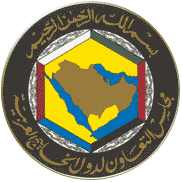
In response to His Excellency the Saudi Minister of Agriculture's call upon the ministers of health and agriculture of the GCC states, with regard to avian influenza which has swept several countries around the world, and seeking to take the proper actions to protect these countries from the H5N1 prevalence, a meeting was held in Riyadh on November 16th 2005. The meeting discussed the epidemiological developments of avian influenza at the world level, as well as the national plans and strategies meant to fight the pandemic. Meanwhile, the meeting participants treasured the precautionary actions taken in this regard. After having elaborate talks on this issue, covering all its aspects, the ministers put forward the following recommendations:
- Putting all the technical and human resources of each member country at the disposal of all GCC countries.
- Keeping an eye on the world's epidemiological developments of avian influenza.
- Proceeding on the enforcement of national plans, and working to set a unified GCC strategy to combat avian influenza.
- Exchanging information and experiences among the GCC's ministries of health and agriculture, and designating a liaison officer in each of these ministries to make up a direct communication link between the GCC countries in this respect.
- Banning the import of birds and poultry products (meat, eggs, poultry fodders, etc.) from the countries confirmed or suspected to be stricken by the pandemic, as well as stiffening quarantine procedures, and instantly exchanging the information relevant to the ban among the GCC member states, in addition to banning the import of ornamental, waterfowl and wild birds from all over the world.
- Early and instantly reporting any suspected cases of H5N1 in any of the GCC states to the other member states through the liaison officers designated for this purpose.
- Giving directives to the Standing Committee of Animal Resources to hold around-the-clock meetings to discuss this issue, and assigning it to set a unified future plan for the GCC countries meant to fight such pandemics and outbreaks, including an early warning program.
- Proceeding on coordination among the ministries of health and agriculture, as well as any other governmental relevant authorities in the GCC states, with regard to the exchange of information on this disease.
- Activating early warning and epidemiological surveillance systems in full swing to overcome the avian influenza pandemic.
- Providing the requirements necessary for the prevention, diagnosis and treatment of avian influenza in GCC countries.
- Organizing awareness programs intended to educate the society about the program, its risk, ways of infection transmission and the necessary precautions to be taken so as to reduce the possibility of infection.
- Keeping in pace with the world's developments regarding the production of an anti-avian influenza specific vaccine, and embarking on negotiations with the manufacturers of the drug to provide it in due time.
- Integrating efforts among the GCC member states to overcome the disease once detected in birds or humans.